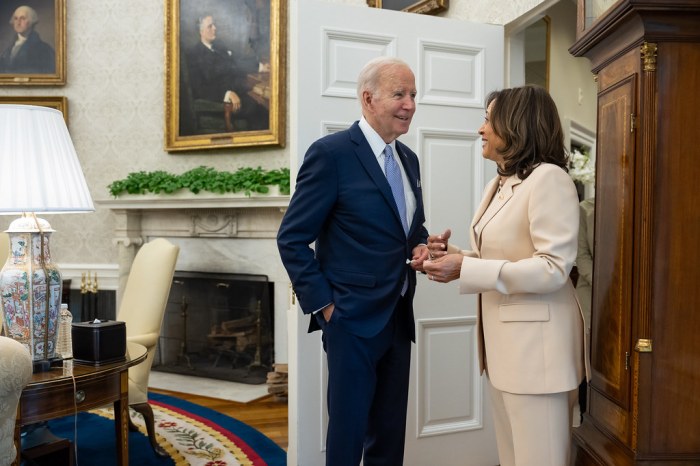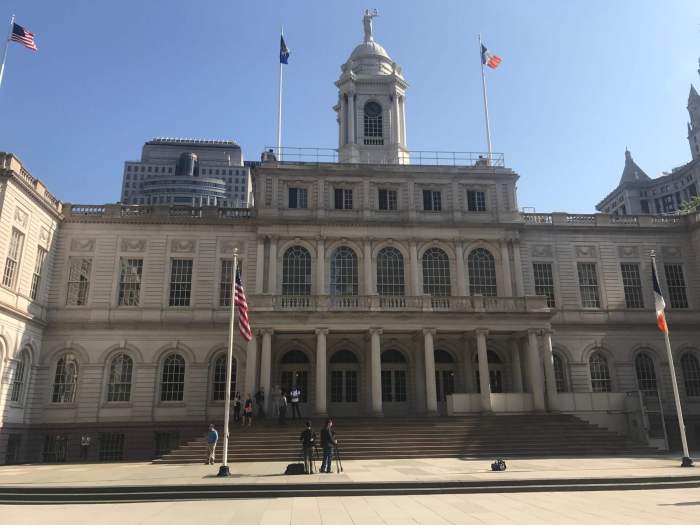When New Jersey Governor Chris Christie said he would veto any gay marriage bill that arrived on his desk and suggested the state instead hold a referendum on whether same-sex couples can marry in the Garden State, he reached back into American history and asserted that civil rights proponents would have welcomed a ballot initiative.
“The fact of the matter is, I think people would have been happy to have a referendum on civil rights rather than fighting and dying in the streets in the South,” the Republican governor said on January 24.
History disagrees.
In the late 1950s, Southern supporters of segregation were pressing for a national referendum on civil rights laws. Richard B. Russell, a Georgia Democrat, wanted such a referendum on legislation proposed by the Eisenhower administration.
Describing that legislation in the New York Times, Russell called it “the most cunningly devised and contrived piece of legislation I have ever seen” and added, “If you propose to move into the South in this fashion, you may as well prepare your concentration camps, for there are not enough jails to hold the people of the South who will today oppose the use of raw Federal power to forcibly commingle white and Negro children in the same schools and in the same places of entertainment.”
Northern Republicans and Democrats rejected Russell’s doomsday scenario.
“Seldom have I seen so many ghosts under a single bed,” said Everett M. Dirksen, an Illinois Republican who became the Senate minority leader in 1959. “The heavens will not rent asunder. The earth will not rock and roll.”
At a press conference held the day after Russell made his comments, President Dwight Eisenhower, also a Republican, told reporters that the civil rights legislation would not make “a very good subject for a referendum, even if you could have one.”
Russell again sought a national referendum in an amendment to the Civil Rights Act of 1964 when that legislation was before Congress. Most Americans did not know what was in the bill, the Times quoted Russell saying. They were confused by “emotionalism” and should have a chance to vote on the “new social order” that the bill contained, he argued.
Dirksen would have none of it.
“Do we have legislative responsibility or don’t we?” he said during the debate on the Senate floor. “I’m ready to accept my responsibility. I’m not going to pass the buck to the people back home and say, ‘I’m thinking about the next election.' And they would say, ‘Haven’t you got any guts to stand up under the Constitution of the United States?’”
In a 67 to 22 vote, the Senate defeated Russell’s amendment. Only three Republicans voted for the Russell amendment. The other 19 supporters were Southern Democrats as well as Robert C. Byrd from West Virginia and Frank J. Lausche from Ohio.
While Dr. Martin Luther King, a civil rights leader who was assassinated in 1968, was part of a 1967 effort to use state and local referendums to express disapproval for the Vietnam War, published reports from the 1960s suggest that civil rights movement leaders were very concerned about the use of such initiatives to roll back their legislative gains.
While not quoting anyone by name, the Times reported in 1964 that civil rights leaders saw such referendums as a possible “seriously unsettling trend” and that expected votes in Maryland and California were “potentially horrible examples of the tyranny of the majority.”
Ultimately, voters in California put some limits on state anti-discrimination laws while voters in Maryland rejected any rollback on civil rights.



































